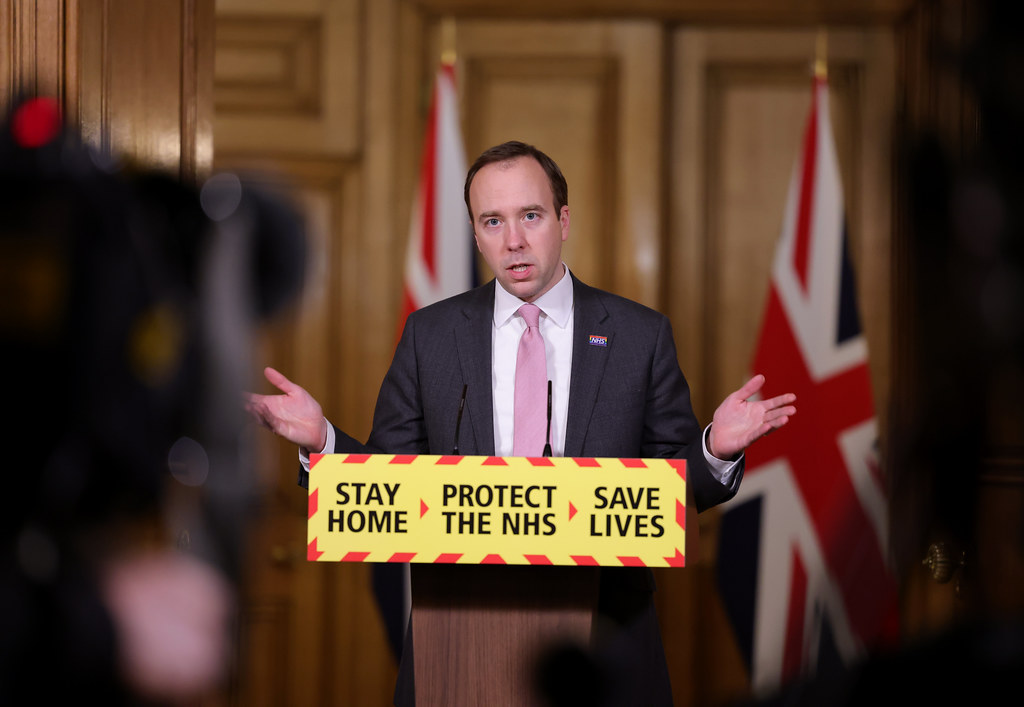
The UK has now administered the first COVID-19 vaccinations to over 5.4 million members of the population according to Prime Minister Boris Johnson’s latest update on Friday 22 January.
The rollout of the Pfizer/BioNTech vaccine and, more recently, the Oxford/AstraZeneca vaccine has been lauded by Conservative MPs as large success of an otherwise shambolic and devastating response to the coronavirus crisis. Almost a year into the outbreak, Britain has the highest infection rate per capita in the world, and the amount of COVID patients in hospitals is 78% higher than there were during the first peak in April 2020[1].
The Government aim for the country is to vaccinate 13 million people by mid-February of this year[2], but we are not even halfway to reaching that goal. Although Britain signed off approval for the Pfizer/BioNTech vaccine on 2 December last year, the complacency of the Conservative Government resulted in a surge of COVID-19 cases and deaths over the Christmas period.
According to the British Medical Journal, “nearly a third (31.2%) of all deaths in England and Wales in the week ending 1 January involved covid-19.”[3] As stated in Johnson’s most recent address, the new strain of COVID-19 is “30% more deadly”[4], yet the Conservative Government are seemingly reliant upon the vaccine roll out to rectify their deadly mishandling of the outbreak. However, it is evident that the Tories have fabricated the success of the vaccinations offered thus far, and have demonstrably lied to the British public about the distribution of the vaccine.
Firstly, it has been revealed that migrant and foreign workers in the NHS have been denied access to vaccinations as some may not have an NHS number. As reported by the Guardian, this is supposedly due to the limitations of the national immunisation vaccine system (NIVS) which has been used to document the records of immunised medical staff[5].
The system requires access to the NHS numbers of everyone that has received a vaccination in order to document information, and is a likely reason for foreign and migrant workers to be turned away. Secondly, according to the London Economic, essential workers in hospitals hired by external contracts are likely to be turned away – including “cleaners, hospital porters and security guards.”[6]
Identified in various news articles and the presence of online uproar, it is clear that Britain’s systemic xenophobia and racism is to blame for these vaccine denials, which will impact working migrants, Black, Asian and other minority ethnic groups the most. Despite Boris Johnson’s praise of the NHS and boasting of approved vaccines that have been rolled out, many of our frontline and essential workers are still being denied this essential protection from the virus.
On behalf of the Doctors’ Association UK, Dr Dolin Bhagawati wrote a letter to Health Secretary Matt Hancock claiming the decision to deny workers the vaccine was “unconscionable and amoral.” Dr Bhagawati goes on to state that “International NHS staff have already faced issues during the pandemic regarding visas and threats of deportation in addition to many facing an increased risk from COVID-19.”
The Conservatives’ blatant dismissal of minority and frontline workers, in roles only viewed as essential within the last year by the party in question, is nothing new. The party’s 10 year rule has done its utmost to continue to threaten the security of migrant workers, many of which the nation depends upon for healthcare assistance and the state continually exploits.
The letter was published by the Association on their Twitter account on 23 January, and we are yet to see an explicit response from the Health Secretary – which was to be expected. Not once throughout this pandemic have migrant workers been offered a substantial lifeline, and the virulently racist structures of the capitalist state still remain in place inexplicably threatening their families and livelihoods. The devastating cancellation of the private members’ bill[7] – which would have allowed Health and Social care workers indefinite leave to remain in the UK– has caused a major blow to frontline migrant workers.
Although the first 5 million+ doses of the vaccine have now been distributed, how long must people wait for their second? Although the UK government have been advised to introduce a minimum of 21 days between their first and second dose of the Pfizer/BioNTech vaccine, the UK government have decided to increase this to 12 weeks.
As stated by BMJ, in regards to the Pfizer/BioNTech vaccine specifically, “There is no data to demonstrate that protection after the first dose is sustained after 21 days.”[8] The UK government’s only reasoning for extending this period is, at best, tenuous. Their argument to administer millions of first-doses to “protect the greatest number of at-risk people overall in the shortest possible time”[9] is suspect. Is this really their intention?
If there is no evidence of protection after 21 days of receiving the first dose, then why are the government extending the vaccination interval period? One could suggest the UK government are relying on the vaccine roll out to save face, and to rectify their slow response to the outbreak in the first place.
Whilst we have a higher vaccination rate per 100 residents than EU countries[10], it is safe to say the our government have altered the rules in order to provide a favourable comparison and dismiss claims of the UK government’s inadequate handling of the outbreak. Are the lives of the elderly, frontline workers and the rest of the population just a means of competitive strategy for the UK?
Hannah Francis
[1] Boris Johnson, ‘Prime Minister’s statement on coronavirus (COVID-19)’, (22nd January, 2021)
[2] Editorial Team, ‘The Guardian view on the vaccine rollout: a shot in the arm’, the Guardian, (19th January, 2021)
[3]‘Covid-19: Deaths rise after Christmas in England and Wales’, BMJ, (12th January, 2021)
[4] Heather Stewart, Ian Sample and Nicola Davis, ‘New UK Covid variant may be 30% more deadly, says Boris Johnson’, the Guardian, (23rd January, 2021)
[5] Aamna Mohdin, Rob Davies and Diane Taylor, ‘Foreign NHS workers could be denied Covid vaccine in England’, the Guardian, (22nd January, 2021)
[6] Henry Goodwin, ‘Foreign NHS workers in England could be denied a Covid vaccine’, the London Economic, (22nd January, 2021)
[7] Diane Taylor, ‘Migrant healthcare workers on Covid frontline angry about deportation risk’, the Guardian, (15th January, 2021)
[8] ‘Covid-19 vaccination: What’s the evidence for extending the dosing interval?’, BMJ, (6th January, 2021)
[9] Ibid.
[10] Michael Peel, Hannah Kuchler and Sarah Neville, ‘Slow vaccination rollout puts EU strategy under scrutiny’, the Financial Times, (24th January, 2021)



